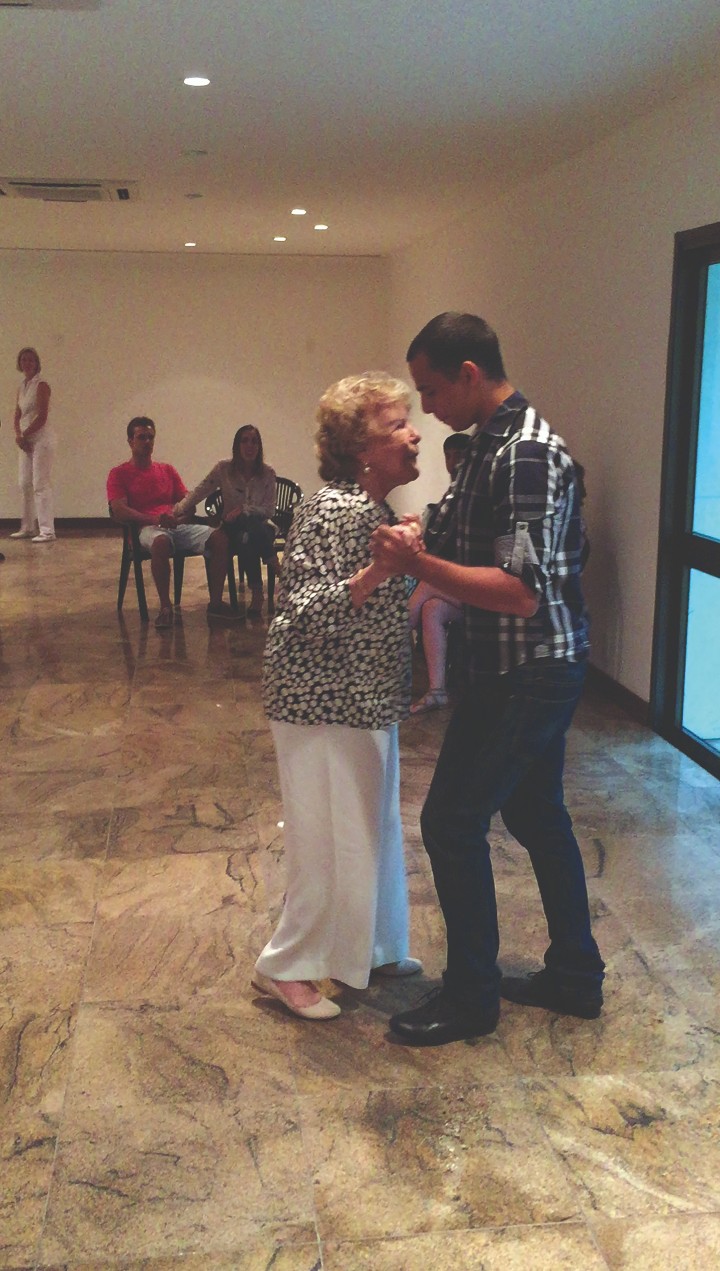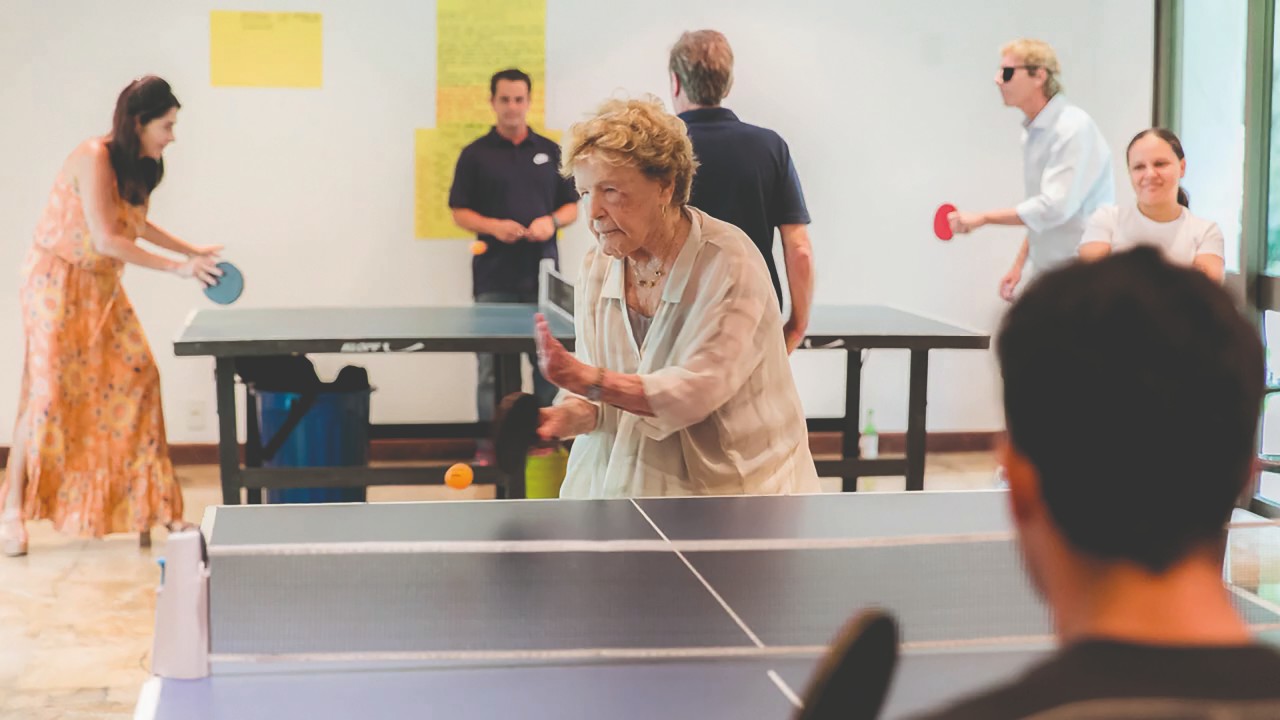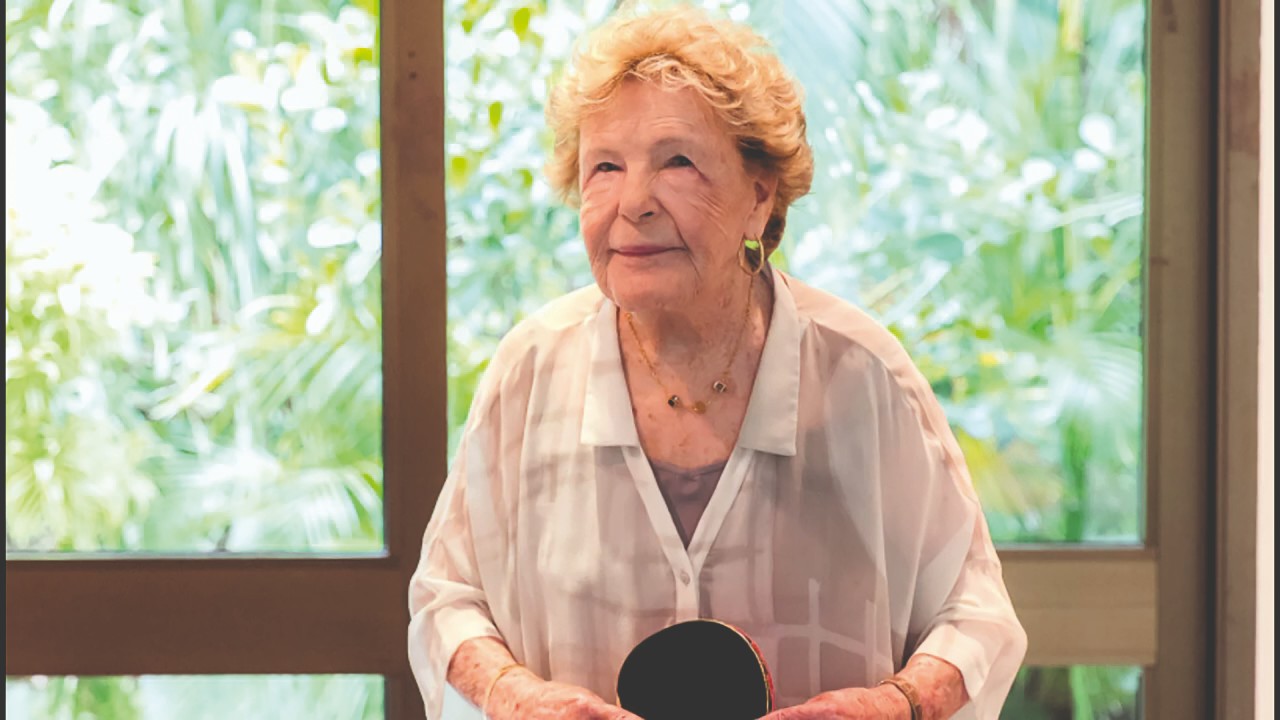As one of the founding members of FINK Mobility, Edith Klien has overseen some momentous changes in the Brazilian moving business. Dominic Weaver spoke to her son Thomas Klien and FINK’s CEO Laura Ganon about the history of Edith’s involvement in the company and the legacy of her unique approach to ensuring its services are of the very highest standard
With only three years to go until her 100th birthday, Edith Klien is no longer involved in the day-to-day activities of FINK Mobility – but her presence as a cornerstone in one of Brazil’s longest-established moving companies is still felt keenly in the firm today. Her singular approach is evident in FINK’s ongoing focus on quality and loyalty to its market, which Klien instilled from her very first involvement in the business.
Edith was born in 1926, in Vienna, during one of her mother Josefa’s return trips to her native Austria to see relatives. The second of three daughters, she moved to São Paulo at the age of 19 to help with her father Joseph’s fledgling packaging and transportation business.
On the recommendation of friends in the country, Joseph Fink had travelled to Brazil because of the severe economic turmoil in Europe in the wake of World War I. He initially worked as a live-in gardener for an American family in Rio de Janeiro, but – after acquainting himself with the region and learning the language – he set up his own small business in the packaging and transportation sector, in which he had worked previously.
His Austrian roots encouraged him to search for international jobs, as well as for domestic work. However, it also meant that during World War II – with Austria part of the German Reich, and Brazil allied to the US – Joseph was detained with other Austrian and German citizens in a ‘light’ prison camp in Rio’s Guanabara Bay. At this point, Edith, her older sister Charlotte, and her mother stepped in to oversee the running of the business.
According to Edith’s youngest child, Thomas Klien, a director of the business today, this was a watershed moment in the firm’s history and led to the setting up of a groupage operation – a first in Brazil. ‘They had to take care of the company and deal with the difficulties of wartime economics,’ he says. ‘They were very active in the operation of the company, and when the end of the war came, they were involved in the consolidation of donations for relief programmes, which were going to Europe to help families during the post-war reconstruction.’
Edith met Paul Klien (see panel, ‘The Kliens and the Brazilian chocolate factory’, on page 45) who, having had experience of warehousing and supply chain operation with the US Army, was invited to work for the company. This coincided with the departure from the business of Edith’s two sisters – Charlotte, who moved with her family to Frankfurt, and Katharina, the youngest, who moved to Boston, Massachusetts, with her American husband.
‘As neither sister had plans to come back to Brazil, they made an agreement with my parents, who bought their portion and became owners of the company,’ says Thomas.

Edith married Paul in 1948, spending several years out of the business caring for her four children – Richard, Andreas, Rosemarie and Thomas. When Thomas, born in 1956, went to kindergarten, Edith returned to work, setting about identifying parts of the business that could be improved and focusing on them in turn until this was done.
‘She didn’t have a fixed position or chair in the company,’ says Thomas. ‘Sometimes there was a requirement on the operational side; sometimes it was on the commercial side. She could be managing the warehouse, taking care of claims, or doing the accounting. Wherever she saw smoke, she’d be there working on that. That’s her nature. She always had an area on her radar and would go into that with the team to take it to the next level and improve its quality.’
Current company CEO Laura Ganon says: ‘Edith was always especially dedicated to customer services and to making sure FINK gave a high-quality and personal service to its customers.’
This focus has seen the company go above and beyond to serve its customers. For example, it once built a branch office inside a church in Olinda, in the north-east of Brazil, while it helped dismantle, pack and dispatch a gilded gold wooden altar for New York’s Guggenheim Museum. It recently took a similar approach in Recife, establishing a satellite operation in the city, with its own crews, to pack an exhibition of the high-profile painter and sculptor Francisco Brennand.
‘This might sound an expensive way of carrying out isolated operations,’ says Thomas, ‘but it’s much more economical than having a permanent set-up there, and the rest of the time having to find business that isn’t necessary in the market we wish to serve. It’s loyalty to our chosen market that guides us in our commercial and operational decisions.’
Over time, this philosophy has resulted in the business expanding into new areas: becoming Brazil’s first providers of DSP services when it formalised the activities it was carrying out for clients such as state-owned telecoms business Embratel; setting up an international shipping line; and running roll-on-roll-off and container marine terminals in Rio. In the 1980s, it also led to a contraction, as the management reorganised the business, reducing the number of offices to move it closer to its quality mission.
‘This way, we developed a strong, stable, middle-sized organisation that was focused on quality,’ says Thomas, ‘and this is a track we have not left since then.’
Although Thomas is the only one of Edith’s children to remain part of FINK, each one played a part in the diversification of the company – as did Ganon, who joined the business 30 years ago, and other long-standing staff members. Thomas’s sister, Rosemarie, worked mainly with the company finances and is now thriving in the charity sector; his brother Andreas helped establish a record-storage arm of the firm, while Richard headed up the shipping line before establishing this as a separate company.
With all this talent, and much more besides, in the company – which, says Ganon, has a notably small rate of staff turnover – Edith was happy to let the younger generation gradually assume management of the company. Thomas took over her day-to-day responsibilities, however, she remained hands-on, continuing to focus on improving the company internationally in her trademark style.
One of her final projects was identifying the company’s paper tax records as a potential liability, and reorganising every file in preparation for the digitalisation of the business.
Today, Thomas oversees the business in a way that echoes his mother’s approach, keeping a keen eye on every aspect of the FINK business, speaking to drivers and other staff, and discussing operations – sometimes anonymously – to understand what’s happening on the ground in a manner, he says, that is always constructive and, ultimately, focused on improving services to FINK’s customers.
He keeps Edith up to date with the latest happenings at the company and reads to her during regular visits, which he makes as well as other family members and Ganon, too.
Ganon says that FINK allows its male and female employees to thrive, but that Edith’s achievements are all the more notable for having come at a time when it was still a traditionally male-dominated industry.
‘To do what Edith did in her time and in the transportation and logistics business is incredible,’ she says. ‘She really is my idol.’

The Kliens and the Brazilian chocolate factory
In the early 1900s, Alwine Sophie Sönksen (the mother of Edith’s husband Paul) set up a chocolate factory in Brazil, as a development of the chocolate import company set up in the country by her late husband – who had emancipated her to run the business, which was forbidden for women at the time.
Thomas Klien, says: ‘The business was importing chocolates to Brazil from France, and they often arrived melted. She said: “This is crazy – Brazil produces cocoa beans, we can build a factory here.” So she went to an exhibition in Leipzig, bought the machines, and brought them back here to do that. It was successful for many years.’
Having grown up and studied in Germany, Alwine’s second husband – Paul’s father – opted to leave the country during the early days of Hitler and set up home in Brazil, where he already had family. After a period studying in the US, Paul returned to Brazil – which is where he met Edith.


